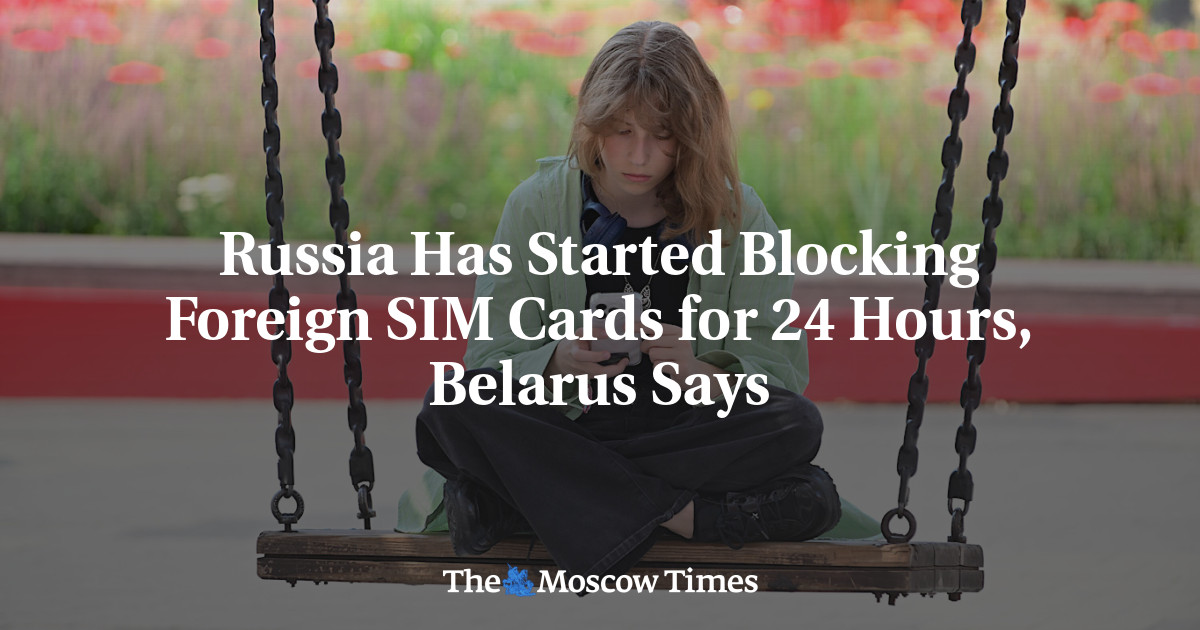Russia has begun enforcing a 24-hour blackout on mobile data and text messaging for all foreign SIM cards that connect to its networks, authorities in neighboring Belarus said this week.
The move follows Russian Communications Minister Maksut Shadayev’s proposal in August to introduce a so-called “cooling-off period” for foreign SIM cards entering the country, a measure aimed at preventing automated or unmanned systems, like drones, from using the mobile network in Russia.
Under that original plan, foreign SIM cards would lose mobile internet for 5 hours after connecting to a Russian network, after which their users would need to clear a captcha test to gain access to mobile services.
However, according to the Belarusian Communications and Informatization Ministry, Russia extended the foreign SIM card restrictions to 24 hours. The blackout will apply automatically when a SIM card is first detected on a Russian network and will reapply if the card remains inactive for three days, the ministry said, adding that calls are not affected.
“The decision is mandatory and intended to safeguard the national security of Russia and its citizens,” the Belarusian ministry said as it advised travelers to rely on WiFi connections.
Authorities in Russia have yet to publicly confirm the 24-hour blackout.
The measure further complicates mobile phone use for foreigners, including tourists, visiting Russia. Since July, foreigners who want to buy a Russian SIM card and mobile phone plan have been required to register with the Unified Biometric System (UBS), a government-run database that collects biometric data.
As a result of those new regulations, the process for getting access to Russian mobile internet now takes several days, which, for many tourists, is lengthy and impractical.
“[Foreign visitors] will only be able to receive and make calls, which is extremely inconvenient. This is a disenfranchisement of any foreigner or tourist, regardless of their country of origin. Nothing will work de facto,” Eldar Murtazin, a mobile internet analyst, told BFM.ru.
Mobile internet blackouts have become a common security measure throughout Russia amid Ukrainian drone attacks this year. To mitigate the disruptions, Russia’s Ministry of Digital Development, Communications and Mass Media has developed a so-called “white list” of essential domestic services that continue working during shutdowns.

